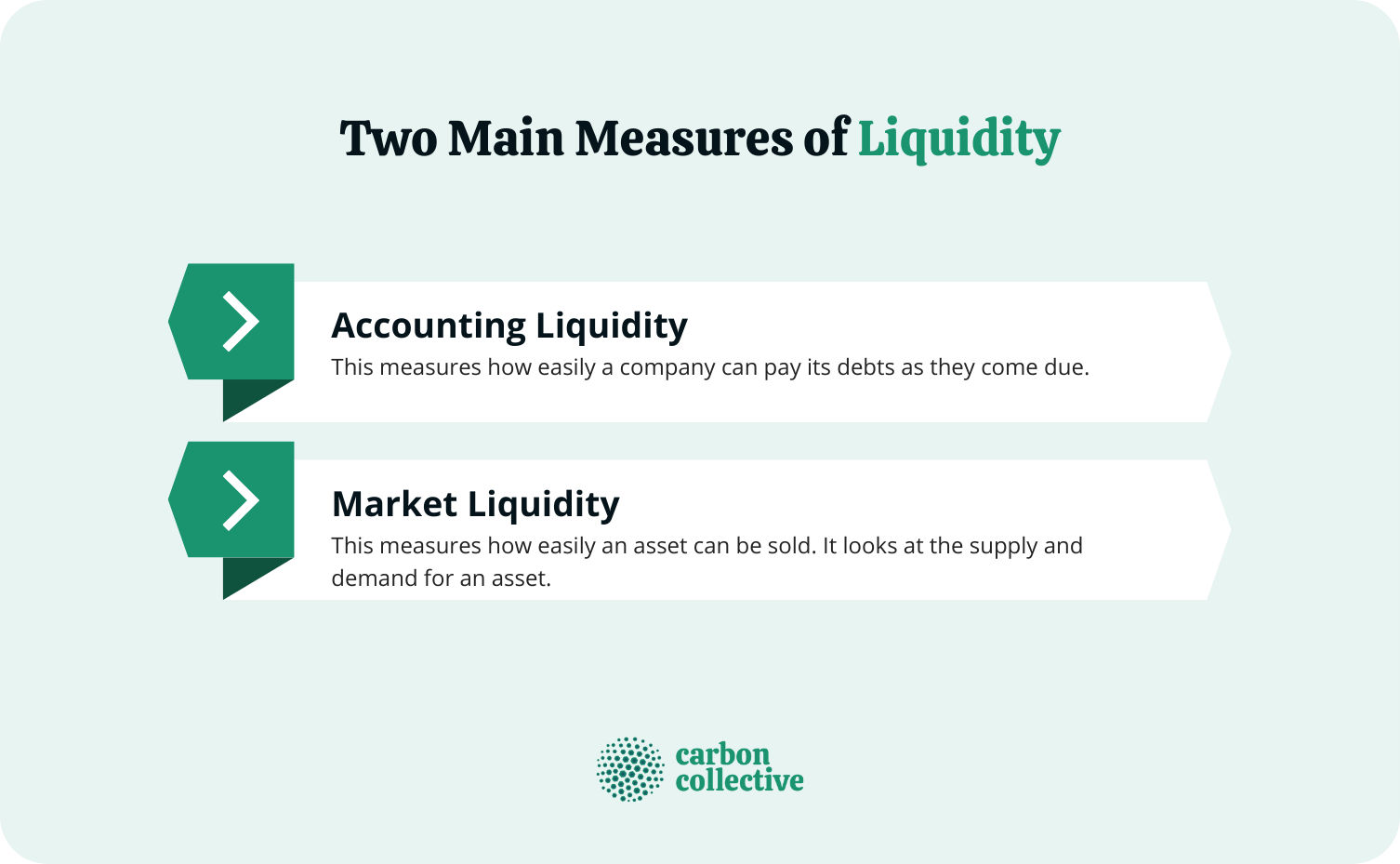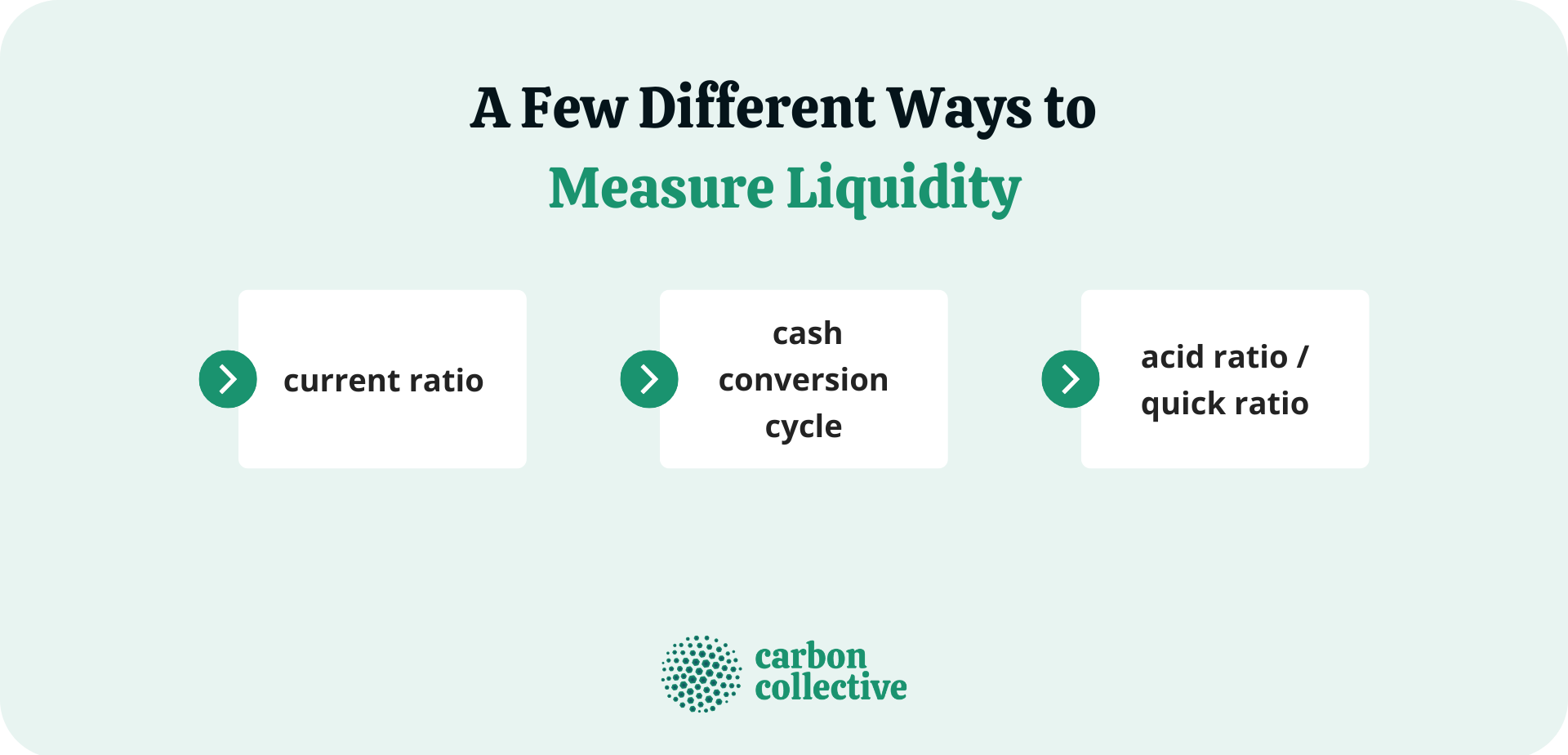What Is Liquidity?
You may have heard the term liquidity before, but what does it mean?
Liquidity measures how easily an asset can be converted into cash. In other words, it is a way to determine how quickly and easily you can turn your investments into cash.
Liquidity is one of the key factors that lenders look at when considering a loan. When you can easily sell your assets, it shows you are in a strong financial position.
Understanding Liquidity
Liquidity is not just about how quickly you can sell your assets. It is also about the marketability of those assets.
In other words, are enough people interested in buying them? If there is a large supply of a particular asset and not many buyers, the liquidity will be low.
This would create difficulties in selling the asset at a fair price.
Measuring Liquidity
There are two main measures of liquidity: accounting and market liquidity.

Accounting liquidity: This measures how easily a company can pay its debts as they come due.
It looks at the company's current assets (cash, investments, and accounts receivable) and compares them to the company's current liabilities (debts due in the next 12 months).
Market liquidity: This measures how easily an asset can be sold. It looks at the supply and demand for an asset.
There are a few different ways to measure liquidity.

- One popular method is the current ratio
This measures the number of current assets (assets that can be converted into cash within one year) relative to the current liabilities. A high current ratio indicates a high level of liquidity.
- Another popular method is the cash conversion cycle
This measures how long it takes a company to convert its inventory into cash.
- Lastly, there is the acid ratio (also known as the quick ratio)
This measures the number of liquid assets (assets that can be converted into cash immediately) and the amount of non-cash current liabilities (liabilities not due in the next 12 months.) A high acid or quick ratio indicates a high level of liquidity.
Liquidity Example
Let's take a look at an example. Say you want to sell a car.
The liquidity of the car would depend on a few factors, including:
- The availability of potential buyers
- The price of the car
- The time it would take to sell the car
If there are few potential buyers and the price is high, the liquidity would be low. If there are many potential buyers and the price is low, the liquidity would be high.
Why Is Liquidity Important?
Liquidity is important because it allows you to respond quickly to changes in the market.
For example, if the stock market crashes, you will want to be able to sell your stocks quickly to minimize your losses.
Liquidity is also crucial for businesses. A company with a high level of liquidity will more likely survive a financial crisis.
Liquidity is also important for individuals. It allows you to access cash quickly in case of an emergency.
Liquidity is one of the most critical factors when it comes to financial stability.
A high level of liquidity ensures you can respond quickly to changes in the market and that you are less likely to face financial difficulties during difficult times.
The Bottom Line
Liquidity is the ability to turn your assets into cash quickly and easily. It is important for individuals, businesses, and the economy.
When you can easily sell your assets, it shows you are in a strong financial position.
Liquidity is not just about how quickly you can sell your assets. It is also about the marketability of those assets.
FAQs
1. What is liquidity?
Liquidity is the ability to turn your assets into cash quickly and easily. When you can easily sell your assets, it shows you are in a strong financial position.
2. How is liquidity measured?
There are a few different ways to measure liquidity, including the current ratio, the acid or quick ratio, and the cash conversion cycle.
3. Does liquidity affect tax?
No, liquidity does not affect tax. Liquidity is about the ability to turn assets into cash quickly and easily. It has nothing to do with taxes.
4. Does liquidity affect the market?
Liquidity affects the market by influencing the supply and demand for assets. A high level of liquidity indicates a large supply of assets and vice versa.
5. Does liquidity affect the economy?
Yes, liquidity affects the economy by influencing the supply and demand for assets. A high level of liquidity can lead to economic bubbles. Liquidity is one of the most important factors when it comes to financial stability.
